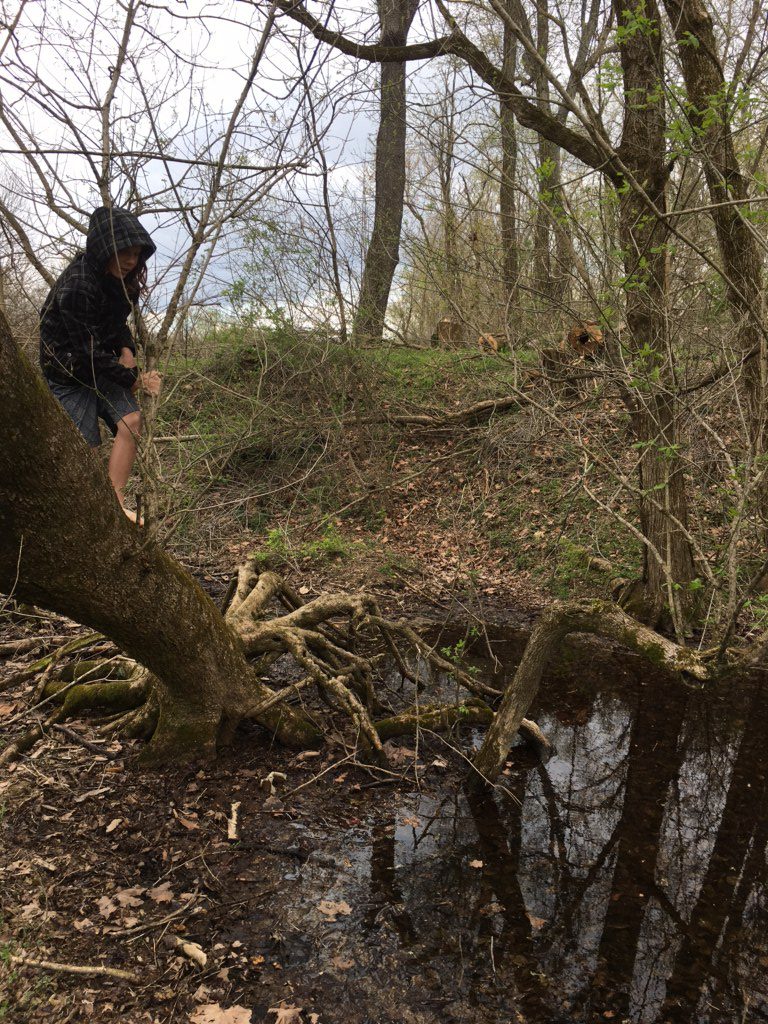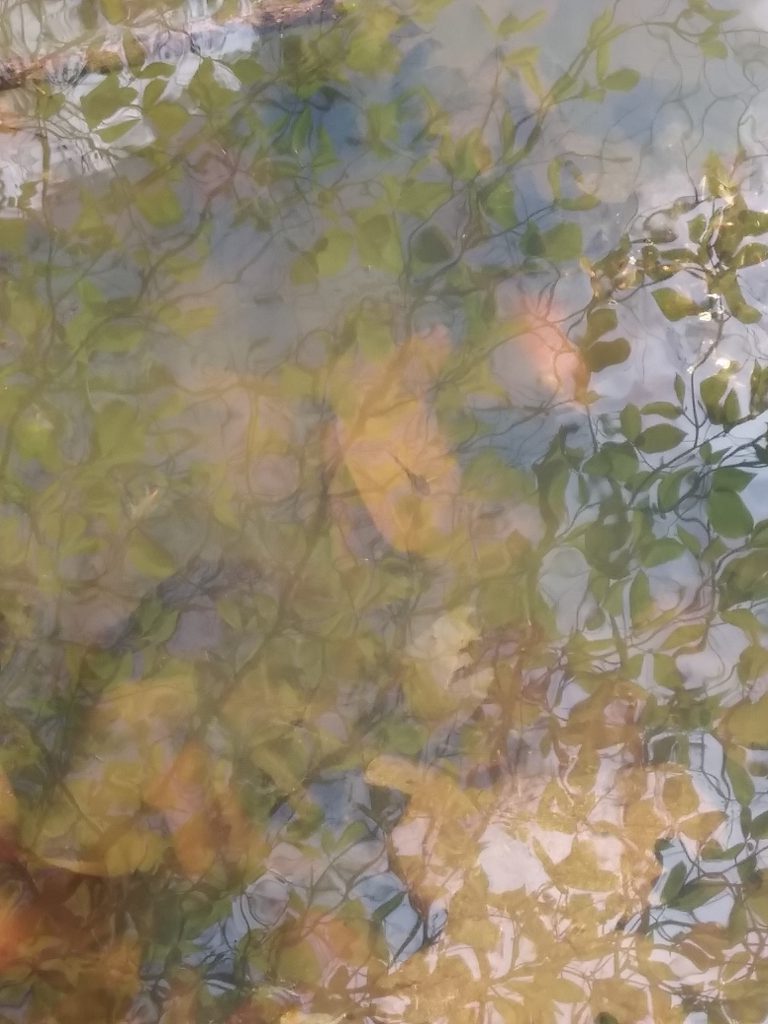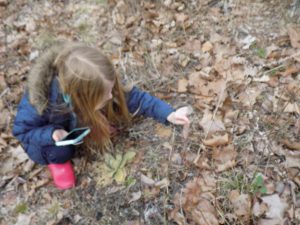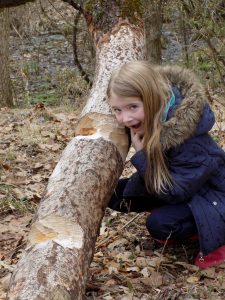Did you get enough of vernal pools last week? No? Me neither! Vernal pools are amazing and teeming with life. Check out Joe’s lesson if you haven’t already. Today we’ll dive a little deeper into the sounds of vernal pools, namely, frog calls!
Some of you took your own trips to vernal pools. Check out what you found:

Quinn identified vernal pools by his home 
Simone found salamander or frog tadpoles
This Friday: Virtual Field Trip!
Join us this Friday via Zoom to explore a vernal pool with Joe! Joe will bring his net; you can bring your questions and stories.
Register here: https://zoom.us/meeting/register/tJIuc–gqD4tHdJ7aRucvGQiRqTPbYGtRNKf
Facebook event page: https://www.facebook.com/events/583958419142539/
You can also explore these 360 photo tours of wetlands, creeks, and seasonal pools in Ohio on your own. What biotic and abiotic factors do you see?
Frog and Toad Calls
As the snow melts, and the spring rainstorms start, seasonal vernal pools and wetlands fill up, producing beautiful habitat for many organisms. You can see vernal pools in many places: when walking through the woods, driving down the road, or maybe even along the bike path. If you sit quietly, listen and watch, you may be able to see some of many species there.
Sometimes, the sounds of frogs are the best way to find a vernal pool! Each toad and frog species makes a different call.
Have you ever heard this frog? It is one of the earliest ones we hear in spring in Ohio:
Joe heard these wood frogs calling–they sound very different from the peepers! (I think they sound like ducks).
Joe heard these wood frogs start calling on March 8. Last year, he heard them on March 24. Why did they start earlier this year? Scientists at Ohio University are researching this question. They think climate change and warmer winters might be affecting the frogs. How do you think frogs might be affected by warmer seasons?
Why do frogs call? Often, males are trying to attract a female. Other times, they make a different sound called an “encounter call,” to scare away other males.
What have you heard?
Have you heard any frogs calling? You might hear them from your house, or when you drive or walk past wet places.
You can identify those frogs by their sounds: Visit this website to listen to frog calls and figure out what kind of frogs you heard. Scientists do this too
, to understand where and when frogs show up.Listen to a few different frog calls on the website above, and choose one you like. What do you think they sound like? For example, the wood frogs remind me of ducks or turkeys.
If you can find a good place to settle in and listen, here are a few more ideas:
- How many frogs, birds, or other animals can you hear? Can you draw a picture or map of what you hear (use your imagination)? You might hear animals other than frogs that like water, like red-winged blackbirds.

- If you can hear a frog or other critter, try to follow the sound until you can see the animal too. You will have to be sneaky! Walk very, very slowly, and step very, very softly, like a fox. If you move too fast, frogs will hop away from you.
- You can also look under logs, leaves, and in damp places for salamanders and other critters. If you find a salamander, frog, or other water-loving creature, only touch gently if your hands are wet–otherwise you may hurt it.
- Can you identify what you found? You can always ask for help in the comments.

- For older kids and adults: FrogWatch USA gathers data on frog calls, like when and where people hear frogs. You can explore those maps and graphs–or make your own–here. Play around with the site to answer a question of your own, or see what what other people have learned! People have wondered things like:
- At what temperature will the frogs sing?
- Where in my area have certain species been found?
- Do toads like wetter or drier habitat best?
- Tell us about what you learned from looking at the data!
Summary
- Explore frog calls this week: by listening outside, by listening to recordings in the links above, or by exploring the FrogWatch USA database.
- Share your ideas: What do some of the frog calls sound like to you? What are some factors that might affect when frogs start calling? Anything else?
- Take your listening deeper by drawing, mapping, or following the sounds you hear. Share below!
- Register for our Friday Zoom field trip, if you like!
